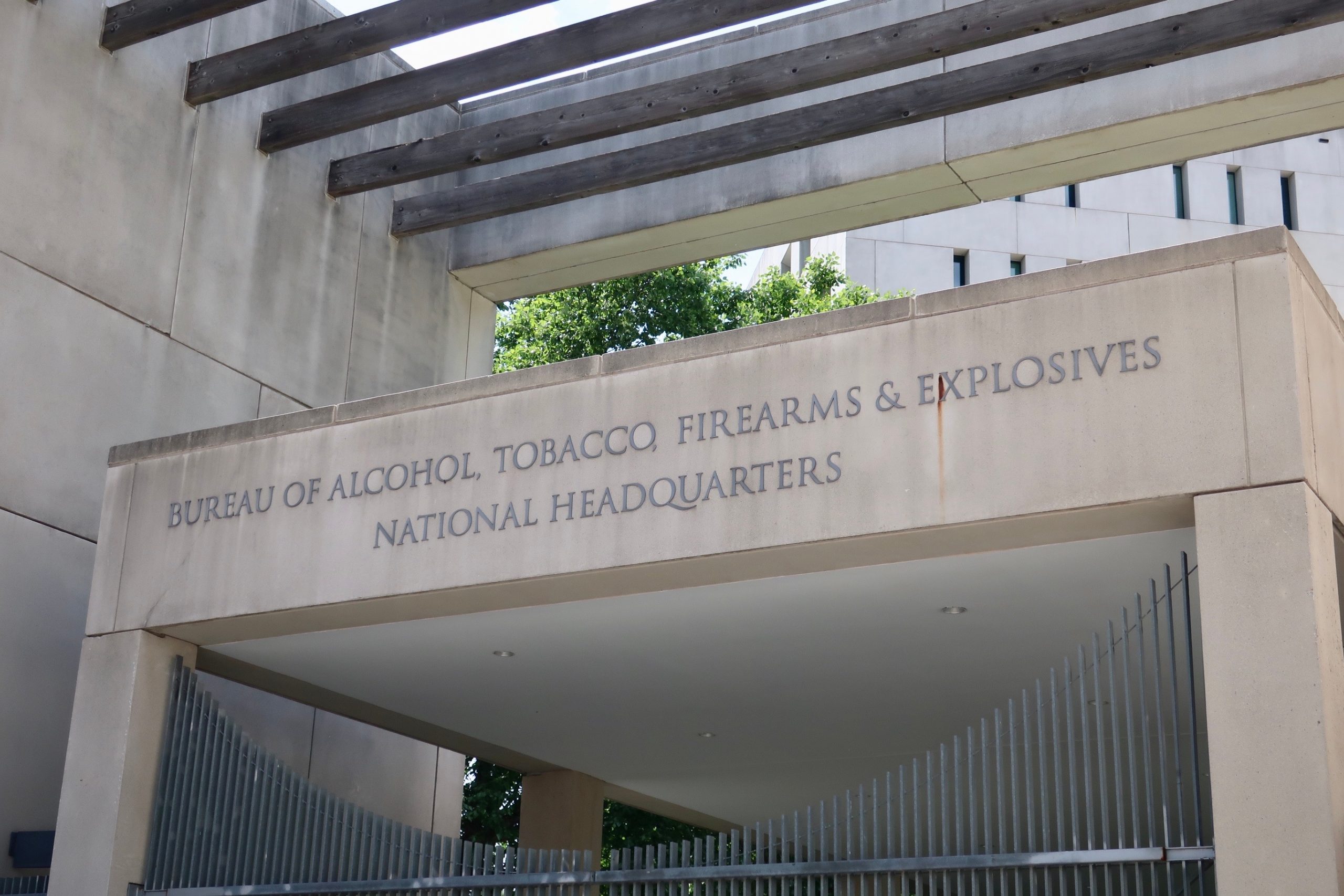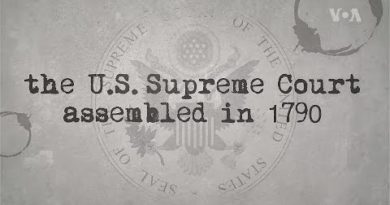Biden administration, families ask justices to roll back state restrictions on transgender care for minors
Petitions of the week
on Jan 29, 2024
at 11:38 am
The Petitions of the Week column highlights a selection of cert petitions recently filed in the Supreme Court. A list of all petitions we’re watching is available here.
Last spring, Tennessee and Kentucky enacted laws that prevent children under the age of 18 from receiving gender-affirming care. This week, we highlight petitions that ask the justices to consider, among other things, whether those laws violate the 14th Amendment of the Constitution.
The neighboring states’ similar laws are part of a recent wave of state legislation around the country restricting health care for transgender teens. Tennessee’s law, enacted last March, prohibits medical treatments that are intended to allow a minor “to identify with, or live as, a purported identity inconsistent with the minor’s sex” or to treat “purported discomfort or distress from a discordance between the minor’s sex and asserted identity.”
Kentucky’s law, enacted a few weeks after Tennessee’s, forbids medical treatments “for the purpose of attempting to alter the appearance of, or to validate a minor’s perception of, [a] minor’s sex.”
Although both states’ laws ban a range of procedures and treatments, including gender-reassignment surgery, the current controversy focuses on two treatments in particular: puberty blockers, which stop the changes from puberty; and hormone therapy, which produces physiological changes to align the appearance of a transgender person with their gender identity. For minors, hormone therapy generally involves providing testosterone to transgender boys and testosterone-suppressants and estrogen to transgender girls.
Soon after the laws were enacted, transgender children and their parents in both states went to federal court, seeking to prevent them from going into effect. The challenges are two-fold. First, the challengers argue that the restrictions on puberty blockers and hormone therapy violate the equal protection clause of the 14th Amendment because they discriminate based on sex. Specifically, the challengers contend, the laws allow minors to use puberty blockers and hormone therapy when they are doing so to conform to their sex as designated at birth, while barring transgender minors from using the same treatments.
And second, they contend that those prohibitions violate the due process clause of the 14th Amendment by infringing upon parents’ rights to make medical decisions for their children.
The Biden administration intervened in the Tennessee case to support the challengers, under a law that allows the attorney general to sue on behalf of the United States to address equal protection violations of national importance.
On the same day last June, federal district courts in Tennessee and Kentucky issued orders blocking the laws from going into effect. Both states then asked the 6th Circuit to lift those orders while they prepared to appeal. The court of appeals refused, instead expediting the cases for argument together in the fall.
After full consideration, a divided panel of the 6th Circuit ruled that the states were likely to win their appeals and, in the meantime, gave them a green light to enforce the laws.
On the equal protection issue, the court of appeals held that the restrictions on puberty blockers and hormone therapy do not discriminate on the basis of sex because they prohibit all minors from receiving gender-affirming care, regardless of sex. And even if the laws do discriminate against transgender youth, the 6th Circuit concluded, the Supreme Court has not ruled that the Constitution requires more than a rational basis for distinctions on account of gender identity, and so the states’ concerns with medical involvement in the development of children and teenagers are sufficient.
The appeals court similarly rejected the due process challenge. In light of the Supreme Court’s decision in Dobbs v. Jackson Women’s Health Organization, overturning the constitutional right to abortion, the 6th Circuit explained that states have a deeply rooted history and tradition of regulating medical treatments consistent with the due process clause. By contrast, the court of appeals reasoned, puberty blockers and hormone therapy are novel medical developments whose treatment is best left to the judgment of legislatures.
In United States v. Skrmetti, L. W. v. Skrmetti, and Jane Doe 1 v. Kentucky ex rel. Cameron, the Biden administration and Tennessee and Kentucky families ask the justices to grant review and reverse the 6th Circuit’s ruling. All three maintain that the laws violate the equal protection clause because the Supreme Court’s decision in Bostock v. Clayton County, which held that firing gay and transgender employees violates federal employment discrimination laws, made clear that distinctions on the basis of gender identity are made on the basis of sex. And the two sets of private challengers argue that the laws violate the due process clause because the Supreme Court has repeatedly struck down state restrictions on parents’ rights – no less deeply rooted in history and tradition – to direct aspects of their children’s lives.
A list of this week’s featured petitions is below:
Porter v. Martinez
23-423
Issues: (1) Whether the government may categorically ban expressive conduct, such as expressive honking of car horns, in the name of traffic safety without presenting any evidence that its ban furthers that interest; and (2) whether the government may categorically ban expressive conduct, such as expressive honking of car horns, where the government had not tried — or at least seriously considered — using less restrictive measures to address its traffic safety concerns.
M. C. v. Indiana Department of Child Services
23-450
Issues: (1) Whether a prior restraint barring a religious parent’s speech about the topic of sex and gender with their child while allowing and even requiring speech on the same topic from a different viewpoint violates the free speech or free exercise clauses of the First Amendment; and (2) whether a trial court’s order removing a child from fit parents without a particularized finding of neglect or abuse violates their right to the care, custody, and control of their child under the 14th Amendment.
L. W. v. Skrmetti
23-466
Issues: (1) Whether Tennessee’s Senate Bill 1, which categorically bans gender-affirming healthcare for transgender adolescents, triggers heightened scrutiny and likely violates the 14th Amendment’s equal protection clause; and (2) whether Senate Bill 1 likely violates the fundamental right of parents to make decisions concerning the medical care of their children guaranteed by the 14th Amendment’s due process clause.
United States v. Skrmetti
23-477
Issue: Whether Tennessee Senate Bill 1, which prohibits all medical treatments intended to allow “a minor to identify with, or live as, a purported identity inconsistent with the minor’s sex” or to treat “purported discomfort or distress from a discordance between the minor’s sex and asserted identity,” violates the equal protection clause of the 14th Amendment.
Jane Doe 1 v. Kentucky ex rel. Cameron
23-492
Issues: (1) Whether, under the 14th Amendment’s due process clause, Kentucky Revised Statutes Section 311.372(2), which bans medical treatments “for the purpose of attempting to alter the appearance of, or to validate a minor’s perception of, the minor’s sex, if that appearance or perception is inconsistent with the minor’s sex,” should be subjected to heightened scrutiny because it burdens parents’ right to direct the medical treatment of their children; (2) whether, under the 14th Amendment’s equal protection clause, § 311.372(2) should be subjected to heightened scrutiny because it classifies on the basis of sex and transgender status; and (3) whether petitioners are likely to show that § 311.372(2) does not satisfy heightened scrutiny.






